Is it a debt of history, or a burden of reality?
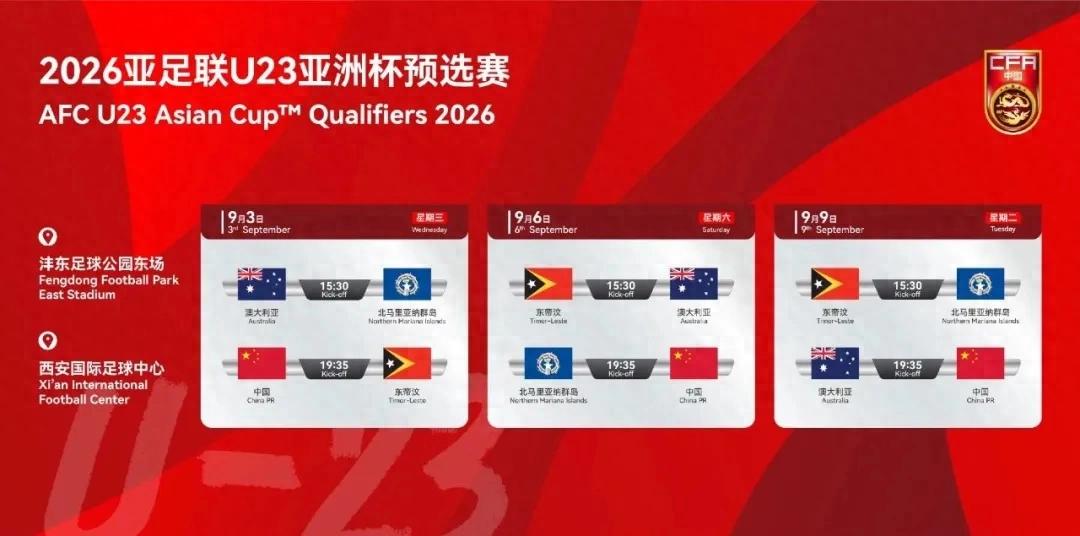
By Liu Xiaoxin In the past week, colleagues from the Xi'an Sports Bureau and the Xi'an Cultural and Tourism Bureau have been quite anxious. The reason is simple: on August 6, the official website of the Chinese Football Association announced that the Xi'an International Football Center would host its first international event, the 2026 AFC U23 Asian Cup qualifiers. However, the relevant parties in Xi'an quickly realized that they seemed to have fallen into a pit that had already been dug. As soon as the news was released, it immediately drew a wave of criticism. Some lightly mocked Xi'an as the "rescuer" of the Chinese Football Association, while others bluntly labeled the potential host as "supporting the association, a public enemy on the internet," and more seriously, it might further provoke a boycott of tourism in Xi'an.
Xi'an feels innocent; it feels like it has been caught in the crossfire. Why is it that while others are hosting events to boost the economy, they are met with public outrage just as they are starting?
This is a question.
The fundamental fact reflected by this question is that after national policies clearly indicate a strong emphasis on Chinese football, there has been a complete failure from U20 to U17 to the national team, leading to extreme disappointment that has slowly fermented into an uncompromising collective boycott of the Chinese Football Association and national teams.
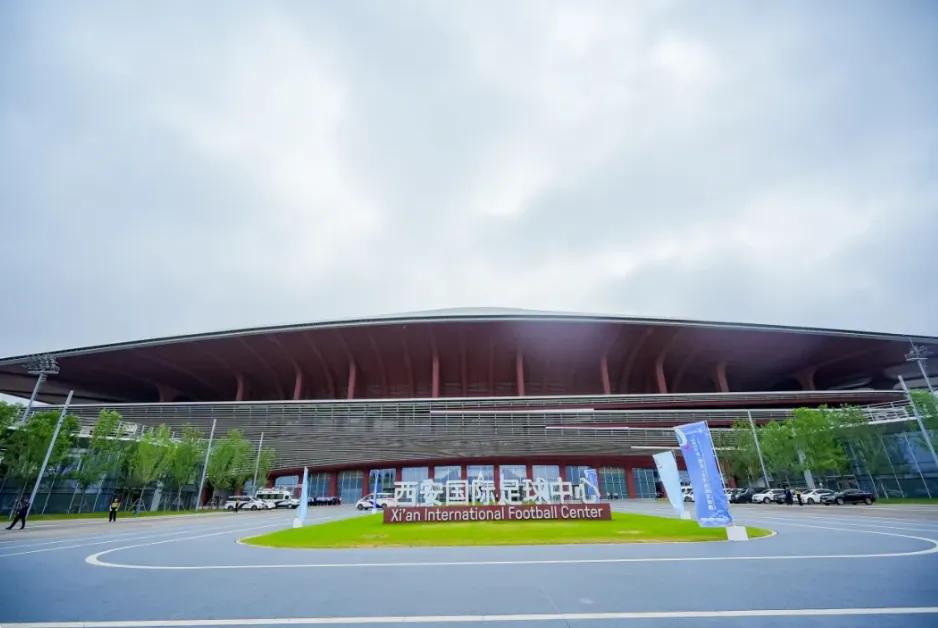
Those familiar with Chinese football may understand that over the past decade, the continuous defeats in matches have paradoxically led to a maximum level of tolerance and understanding from Chinese fans. However, in the past year, the awakening of policies and the imaginative space created by goodwill have led people to become hopeful again. Chinese football seems to be repeating a habitual cycle, always pulling you back to reality just when you start to see hope, while its followers have merely replaced the old methods of sending physical complaints with online petitions in the internet age. The board has approved a sponsorship plan, while BYD has retreated amid difficulties, and the unaware Xi'an Sports Bureau and Cultural and Tourism Bureau have bravely entered the pit, becoming victims of a collective accountability. They are facing not just a question of criticism, but a phenomenon of collective behavior.
Theoretically, all collective awareness arising from unfair and unsatisfactory social phenomena is spontaneous and a natural outpouring of emotions. Chinese football largely belongs to the second category of phenomena, always creating a significant imbalance between extremely unsatisfactory outcomes and the ever-increasing public expectations. Thus, the collective awareness regarding Chinese football has become an episodic affliction, with the internet and mobile phones merely enriching the forms of this collective awareness.
However, should we consider whether Chinese football, as an appropriate outlet for social emotions, can continuously repeat entertaining games for the public? Today, with various policies being introduced and a new national system striving for practical results in football, shouldn't the true collective awareness grasp relatively consistent standards, either encouraging or urging, and treat Chinese football as a serious endeavor? "Football" is merely a specialized media outlet, so we are accustomed to viewing issues from the perspective of football. Perhaps what Chinese football lacks is precisely the standards for playing football and the standards for evaluating football.

Let's take a few examples.
For instance, the boycott by Guangzhou fans against Guangzhou Evergrande. We once tried to gather some representative fan organizations to discuss whether we should boycott Guangzhou Evergrande because of the Guangzhou team, but ultimately, the idea failed to materialize because some people did not want to show up, while others were concerned about us speaking on behalf of Guangzhou Evergrande.
In reality, we only want to ask two questions. First, who is responsible for the cancellation of the Guangzhou team's registration? Is it the Guangzhou Football Association? Is it the Guangzhou Sports Bureau? Is it the Guangzhou municipal government? Actually, none of these. A core issue is whether the Evergrande Group invested 8 billion yuan in football or lent 8 billion yuan to Guangzhou Evergrande Club. From a football perspective, we believe the answer is obvious, but this is precisely an economic issue. The 8 billion yuan loan is a figure that cannot be erased, a debt that cannot simply vanish. In comparison, football, and our memories of football, is a topic that is trivial.
Second, are fans loyal to a city or to a logo? The Guangzhou team has indeed left many beautiful memories for this city and its fans. However, when this team departs for non-football reasons, should we cling to those memories and stop cheering for football, rejecting any future teams in this city?
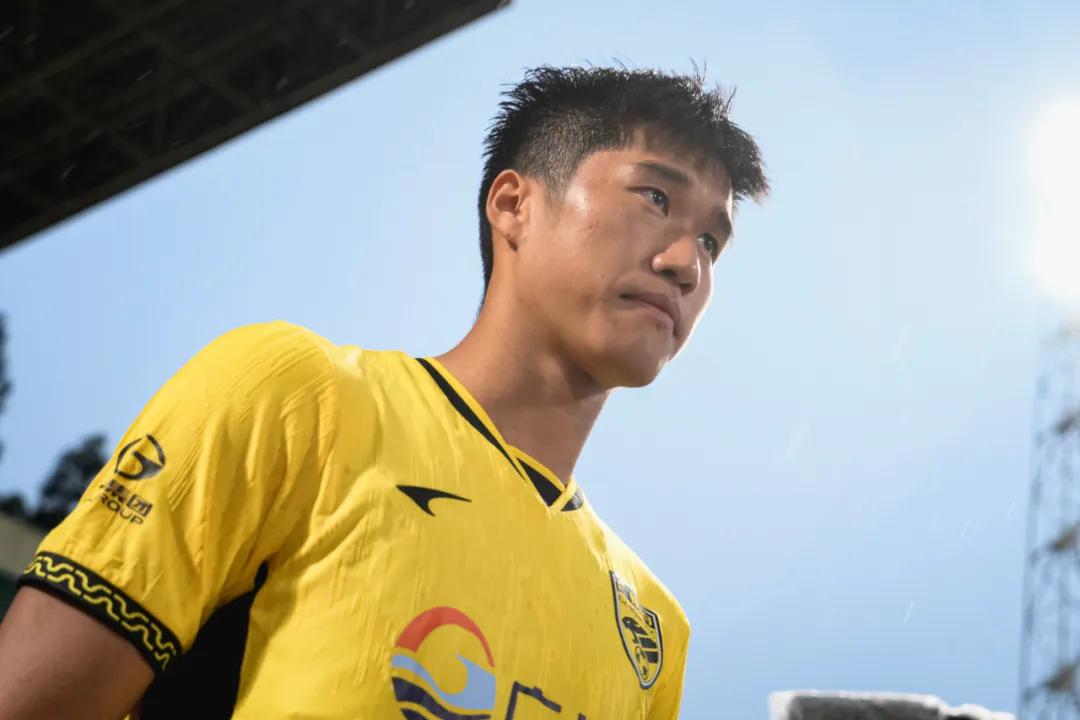
Isn't this a question of evaluation standards?
Another example is the accountability of local governments towards sports departments because of the Super League. In fact, more and more people are beginning to realize that the Super League is a football phenomenon, but more importantly, it is a cultural tourism phenomenon driven by football. However, fundamentally, it is a nationwide activity led by government actions conducted in relatively localized areas. Can the Jiangsu Sports Bureau and Football Association dare to say "Friendship is the fourteenth"? Can they change Changzhou to "Diao Zhou" and "Li Zhou"? Can they require mayors from 13 prefecture-level cities to take the lead? Regardless of whether they are amateur or semi-professional, provincial league competitions under the sports bureau system are already numerous. Now, borrowing the experience and model of the Super League, provinces that already have it are completely revamping, while those that do not are re-entering the fray. For football, this is undoubtedly a great thing, but who can become the next Super League is truly a complex issue of timing, location, and human factors.
Is the Super League causing a bunch of sports bureau directors to hide their identities in the bustling market a question of evaluation standards?
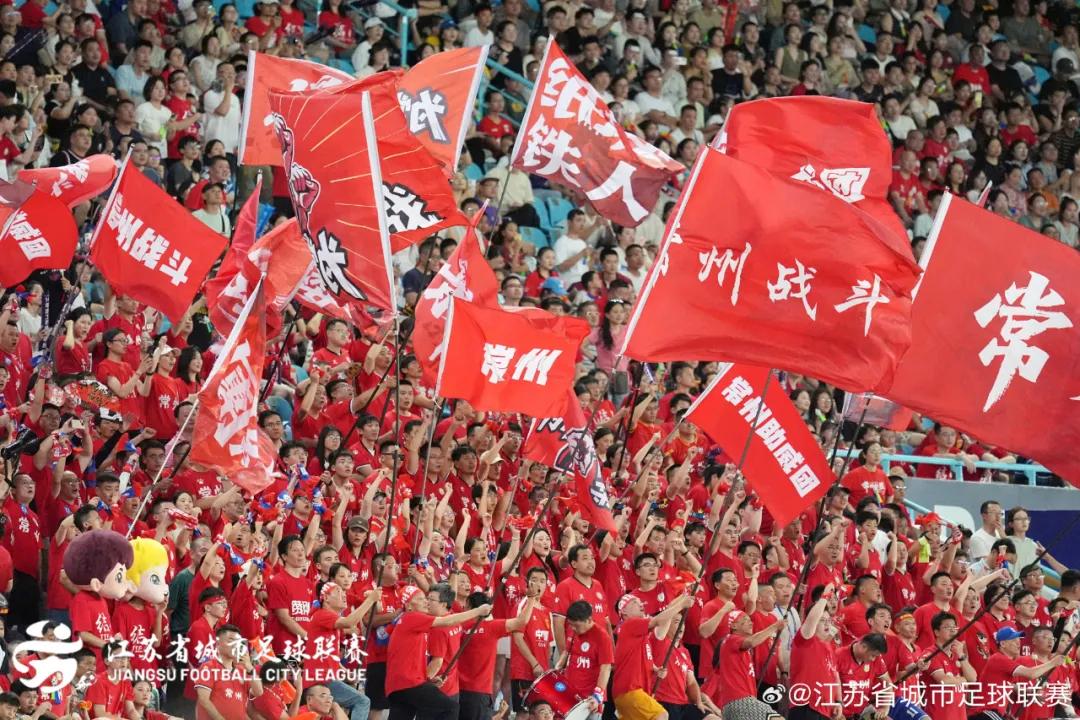
Returning to the performance of the national teams at the three levels, whose fault is it ultimately? Objectively speaking, in the past year, the management and preparations of the Chinese Football Association regarding the national team may be the most detailed and diligent in history. Whether it is the lingering echoes of corruption or the unprecedented importance placed by the country, several tasks are bound to be meticulously executed. The same reasoning applies to the youth department, where the youth football work centered on key cities for national football development may be the most vigorous and with the most implemented indicators in decades. However, we must face the fact that the U17, U20, and World Cup qualifiers, which are the three major points of failure, have all resulted in "losing matches that should not have been lost and failing to win matches that should have been won." This is a normal result but one that severely tests our capacity for endurance. Clearly, our collective awareness is shouting to start over, yet we lack the patience to genuinely begin anew. As a project that has lagged behind for at least 8 to 10 years, Chinese football in 2025 is still repaying historical debts, but we must at least ask: if all three teams could qualify on time, what mistakes would Chinese football still need to correct?
Imagine a large enterprise plagued by rampant corruption and serious safety hazards, vigorously rectifying and starting over, yet several overlooked safety issues lead to accidents. Should everything be overturned, collectively resisted, or should they all be eliminated? Is there not a question of evaluation standards in repaying historical debts and bearing the burdens of reality?
In fact, we only want to think about football issues, and we wish to simplify these issues. Today, we will launch a special report on football in Zhangjiakou because there are people who stand daily as participants and practitioners, solving various problems related to football. In our view, this represents a football sample from a fourth-tier city, and many places that wish to engage in football but struggle to find the right approach can examine their practices and thoughts through these questions. Tomorrow, we want to visit Guizhou to see their increasingly vibrant youth events, and the day after tomorrow, we will gather for a nationwide event for century-old prestigious middle schools in Hengyang, Hunan. Football is a simple matter; when more people participate, culture, achievements, and excellence may all come naturally. In a troubled enterprise, everyone is deeply reflecting, everyone is complaining, but ultimately, we still need to think about how to survive.
Just like this match in Xi'an, is it really that no one is allowed to watch, and then no one dares to take it on? Is the hope that China will have no football from now on?
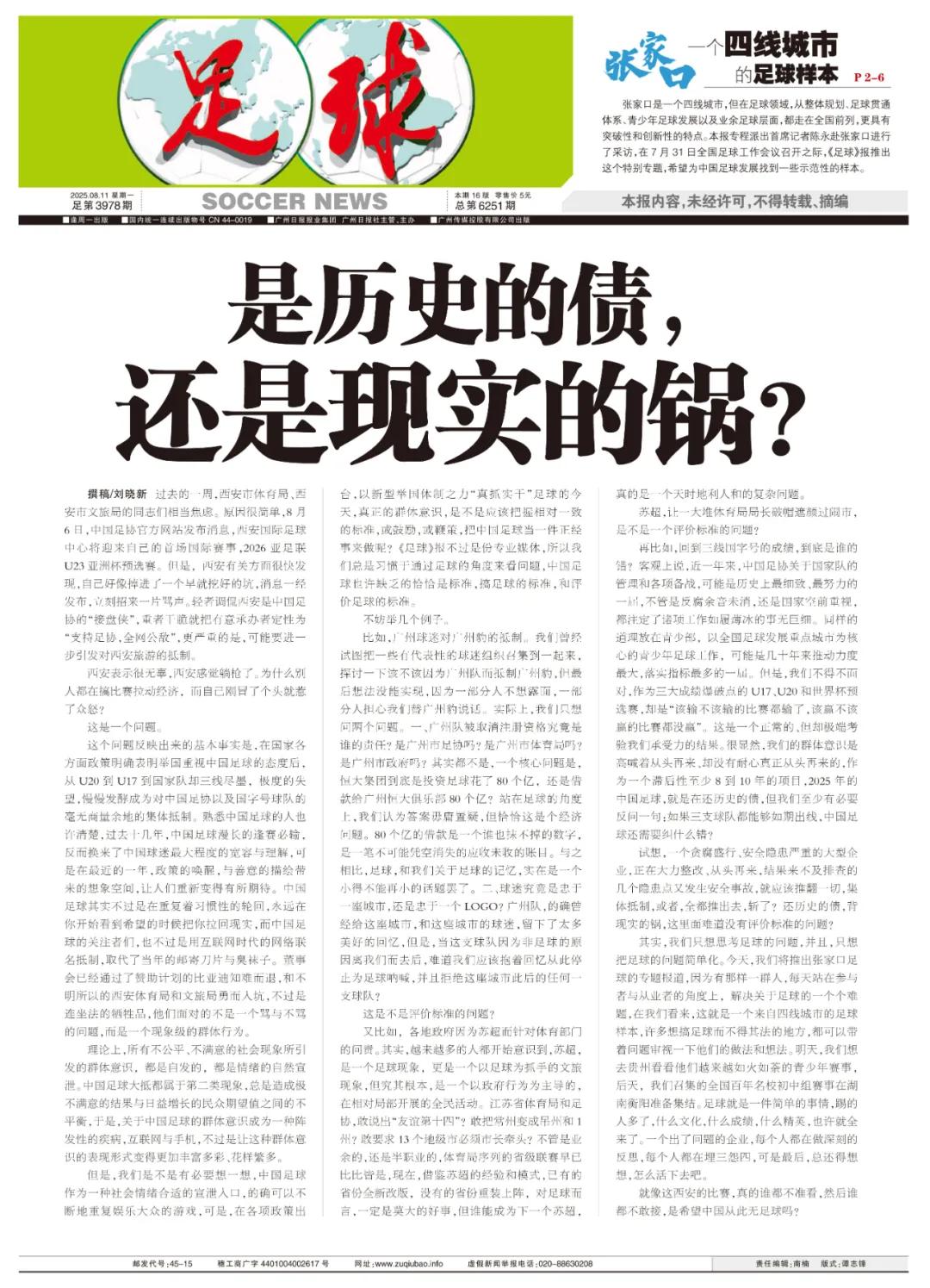










 Links
Links
 Contact
Contact
 App
App


